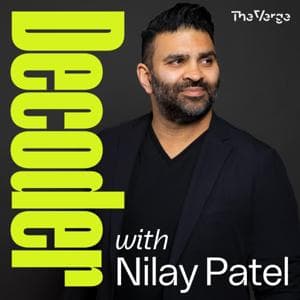Hats, Hustle, and Heritage: How John Brubaker Wears Every Role with Purpose
In a world where reinvention is often just a buzzword, John Brubaker is living proof that you can evolve without losing the core of who you are. Known to many as Coach Bru, a celebrated author, speaker, and performance coach, Brubaker has turned his passion for leadership into bestselling books and transformative programs. But in a bold pivot, he's added a new title to his resume—master hatmaker and founder of Hats by Bru.
This podcast episode dives into the story behind that transformation, revealing how a deep love for craftsmanship, style, and storytelling led him to create a brand that sits at the intersection of identity and artistry.
From Coaching Greatness to Crafting Crowns
In the episode, Brubaker shares how he went from writing leadership books and speaking on big stages to hand-shaping hats in his workshop in Maine. What started as a personal passion evolved into Hats by Bru, a bespoke hat company rooted in tradition and individual expression.
"Every hat I make is a reflection of someone’s story,” Brubaker says in the episode. “It’s not just an accessory—it’s a statement."
Listeners learn how he immersed himself in the craft, studying under master hatters in Texas and Colorado, and why attention to detail—something he honed as a coach—is now the soul of his business.
Why Hats by Bru is More Than a Brand
Brubaker doesn’t just make hats—he creates an experience. Whether it’s a custom fitting, a storytelling session during the design process, or a community event, Hats by Bru reflects a lifestyle of confidence, authenticity, and legacy.
In the episode, Brubaker talks about how his clients range from country musicians and executives to creatives and everyday folks who want to wear something uniquely theirs. His custom events—private hat parties and pop-ups—turn craftsmanship into connection.
“People light up when they put on the hat that’s made for them. It’s like they’re stepping into who they really are,” he shares.
A Legacy of Leadership
Before hats, Brubaker was (and still is) a powerhouse in performance coaching. With titles like Seeds of Success, The Coach Approach, and Stadium Status, he’s helped leaders unlock potential through mindset shifts and strategic focus. His work has been featured in Forbes, Entrepreneur, and Fast Company, and he’s hosted The Coach Bru Podcast, where leadership and life intersect.
Interestingly, the two worlds—coaching and hat-making—aren’t so different. As he explains in the episode:
“Coaching is about seeing people clearly. So is crafting a hat. Both require listening, understanding, and shaping something with intention.”
Blending Purpose with Practice
The episode touches on the importance of slowing down, working with your hands, and creating something meaningful in a digital-first world. Brubaker reflects on the joy of building with intention and the creative peace he’s found in hat making. It’s a refreshing take on entrepreneurship that values depth over speed and connection over clicks.
He’s also authored a companion guide, The Care and Feeding of Your Hat, which mirrors his leadership ethos: take care of your tools, your story, and yourself.
Final Stitch: What This Episode Teaches Us
This conversation with John Brubaker reminds us that our paths don’t have to be linear. You can write books, lead teams, and shape fedoras—all with the same heart. Whether you're a creative, a leader, or someone in search of a new beginning, Hats by Bru is more than a business—it's a metaphor for reclaiming your identity, one stitch at a time.
Listen to the full episode to hear how Coach Bru weaves storytelling, legacy, and leadership into every brim and every brand he builds.
























